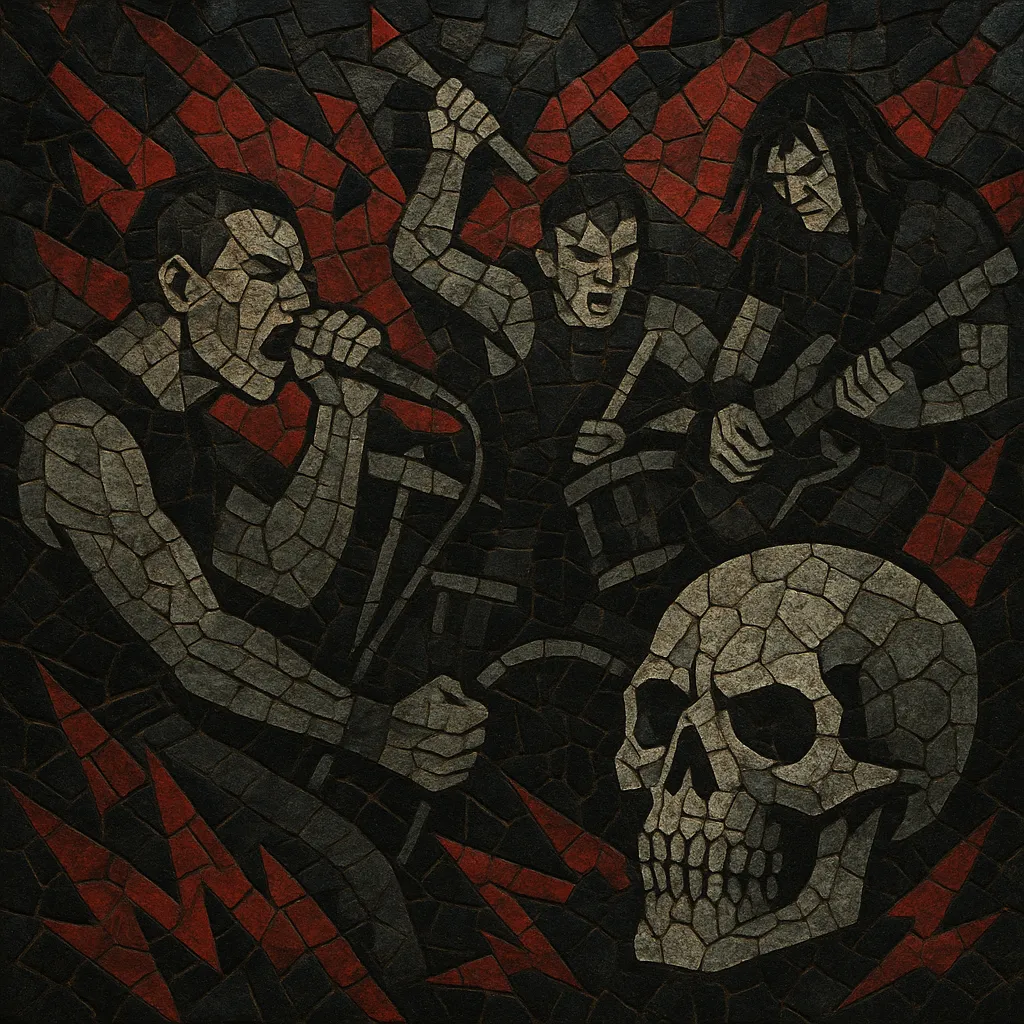H8000 is a regional Belgian strain of metallic hardcore named after the postal codes (8000–8999) of West Flanders. It fuses the power and groove of New York–style hardcore with the riffcraft and extremity of death and thrash metal, resulting in a dark, down‑tuned, breakdown‑heavy sound.
Beyond sound, H8000 is defined by a strong vegan straight edge ethos, DIY activism, and tight-knit community infrastructure around venues like Vort’n Vis (Ieper/Ypres), local youth centers, and the label Good Life Recordings. The scene’s bands emphasized moshable mid‑tempo rhythms, crushing palm‑muted riffs, occasional tremolo/death‑metal passages, gang vocals, and lyrics that foreground animal rights, sobriety, anti‑oppression, and personal conviction.
H8000 coalesced in West Flanders, Belgium, as local punks and straight edge kids absorbed the impact of US hardcore—especially New York Hardcore—while simultaneously being drawn to the weight and precision of thrash and death metal. Venues like Vort’n Vis in Ieper (Ypres) and youth center networks provided crucial DIY infrastructure, hosting touring bands and catalyzing a regional identity.
By the mid‑1990s, a distinctive metallic hardcore sound had formed: drop‑tuned guitars, palm‑muted chugging, double‑kick accents, and abrupt, floor‑shaking breakdowns stitched to death/thrash‑inflected riffs. Good Life Recordings (Kortrijk) documented and exported this sound through key albums and compilations, helping the label and region become synonymous with "H8000." The scene’s vegan straight edge stance, zines, and benefit shows made its politics as visible as its music.
H8000’s DIY ethic thrived around local organizers, show collectives, and later summer gatherings that drew international crowds. The community foregrounded animal rights, anti‑hard‑drug norms, and anti‑fascism, while maintaining a pragmatic, show‑focused network that welcomed bands from across Europe and the US. This ideological clarity and reliable infrastructure made West Flanders a must‑stop for 1990s–2000s hardcore tours.
As lineups evolved and bands split, alumni formed new projects that kept the regional stamp alive while engaging with modern metalcore and beatdown trends. H8000’s DNA—groove‑forward metallic hardcore with uncompromising ethics—fed into European metalcore’s rise, the spread of vegan straight edge in the scene, and the enduring prestige of Belgian hardcore internationally.


